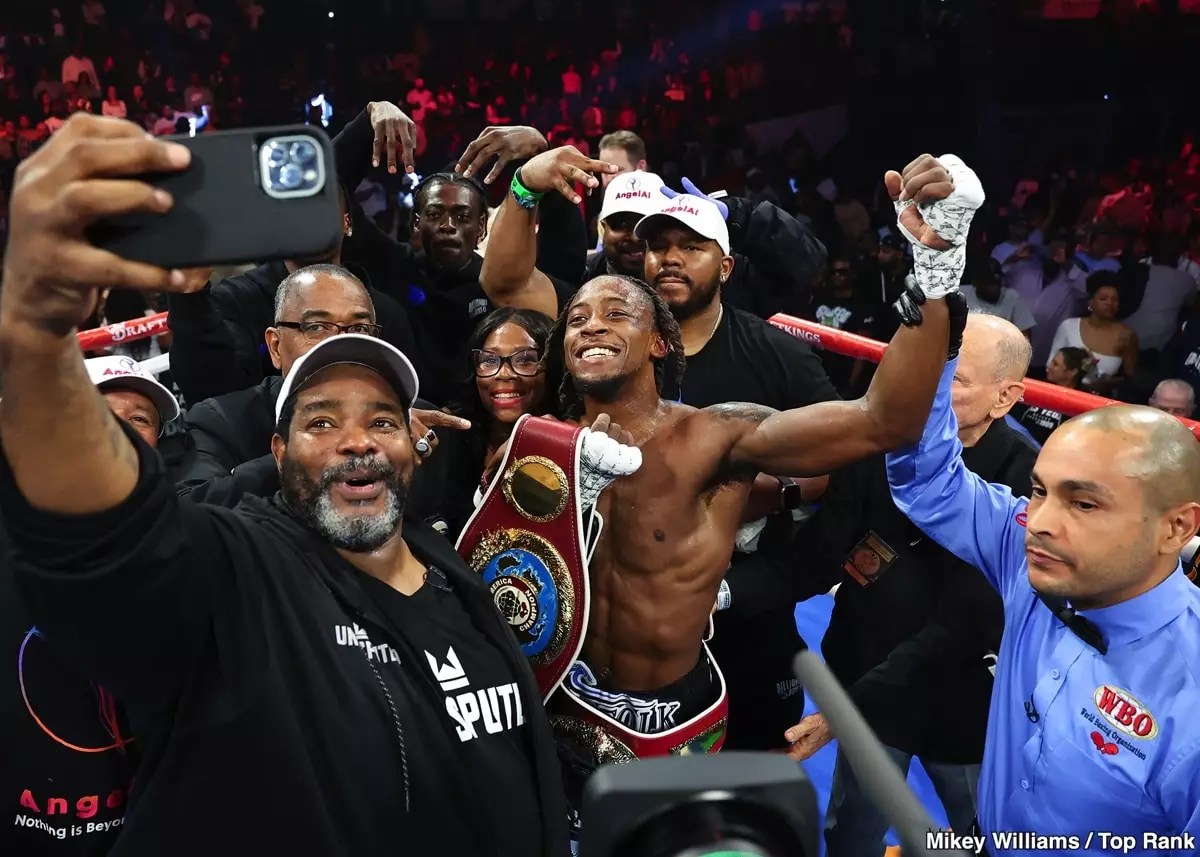In a boxing landscape increasingly mired in the practice of ‘cherry-picking,’ the news surrounding WBO lightweight champion Keyshawn Davis’s upcoming title defense against Edwin De Los Santos raises disturbing questions about the integrity of the sport. Scheduled for June 7th at the Scope Arena in Norfolk, Virginia, the matchup has drawn mixed reactions, particularly due to De Los Santos’s long inactivity and poor form. While some may argue that taking on a virtuoso knockout artist like De Los Santos is a show of confidence, the broader context suggests a troubling trend aimed more at ensuring the champion’s reign than at delivering a truly competitive matchup.
The announcement of an opponent with a mediocre recent track record—De Los Santos hasn’t fought in two years and is coming off a loss—is difficult to justify. It appears less about testing Davis against worthy competition and more about securing an easy win to bolster his title reign. Boxing fans and analysts alike have taken note, suggesting that such a decision undermines the doctrine of competitive credibility within the ring. Ideally, a world champion’s first title defense should be a fierce examination, but this encounter raises concerns that it may instead serve as a calculated means of prolonging Davis’s championship status.
Where Are the Real Challenges?
As former boxer Paulie Malignaggi points out, the fight for tougher matchups isn’t just a question of making bold statements. Stars in this division, including Davis and his contemporaries, seem trapped in a web built by promotional and organizational politics. It appears that Davis selected De Los Santos because he is a less dangerous opponent compared to other fighters, raising the crucial question: Why is boxing increasingly dominated by strategic matchups rather than legitimate competition?
The allure of bravado in combat sports is being overshadowed by an alarming trend that favors the preservation of champions over the spirit of competition. If Davis cannot face stiffer opposition at this point in his career, how can fans and analysts trust that he is truly prepared for the challenges that lie ahead? The ring should not be a safe haven where reputations are bolstered by cyclical match-ups devoid of risk. Instead, it should serve as a testing ground for skill and spirit—a battle arena where champions prove their mettle against formidable foes.
The Implications of a ‘Safe Fight’
Interestingly, the decision to fight an inactive and slightly washed-up opponent could backfire spectacularly. If De Los Santos, who has previously demonstrated his punching power, manages to shock the world and pull off an upset, the fallout could be disastrous for Davis. Failing to secure a convincing win against a lower-ranked opponent would not only tarnish Davis’s reputation but also cast significant doubt over his future trajectory in the sport. Even if he emerges victorious, the doubters will remain, left to wonder who he would have faced if he had truly sought to prove himself.
Moreover, the dynamic between Davis and De Los Santos could skew perceptions of their respective skill levels. With Davis already noted for his size and ability to rehydrate effectively, should he struggle against an opponent who hasn’t fought in years, it may signify deeper issues. Could it be that he is already outgrowing the 135-pound division? The potential weight issues only compound the questions surrounding this fight. A champion who cannot consistently make weight is at risk of losing the very respect and credibility he seeks to gain.
The Fan’s Dilemma: Quality vs. Stalemate
For boxing fans, this looming title defense is a double-edged sword. On one hand, the excitement surrounding Davis as a promising young talent cannot be disregarded; on the other, fans can’t ignore the potential for this bout to become a showcase of mediocrity. The essence of professional boxing, to enthrall and engage, seems to be at odds with the business strategies employed by promoters and managers today. The sport needs bouts that excite and provoke thought—battles that demand not only talent but fortitude and commitment.
In the age of social media and instant gratification, the narrative of boxing is being redefined; however, this matchup could signify a regression. If champions continue to select opponents based on an agenda of safety rather than ambition, the future of boxing could indeed grow bleak. Keyshawn’s alignment with this trend raises pressing questions: will he rise to be another great champion or will he merely be another footnote in a sea of lightweight aspirations? The implications of his decisions could resonate far beyond the ring as boxing grapples with its identity and purpose.


Leave a Reply